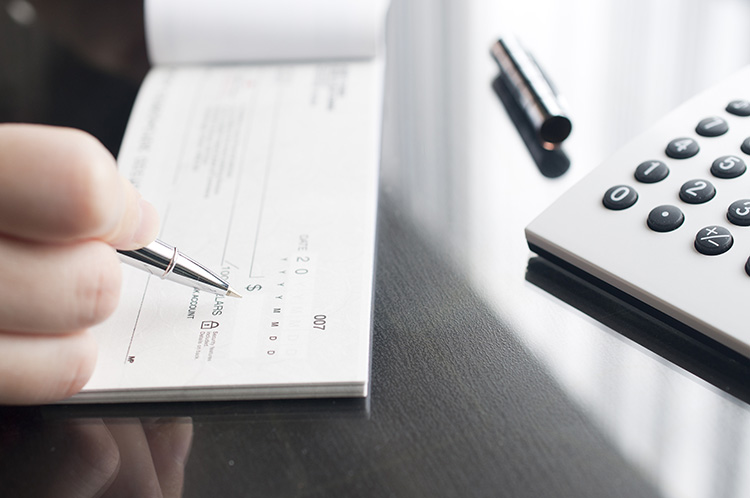You’re about to make a big purchase — maybe your first house, or a car — and even though you saved enough money for a down payment, the seller requires a cashier’s check. If you’ve never purchased a cashier’s check, you might be wondering why a personal check isn’t OK, and what kind of fees you’ll have to pay.
Here’s a little more information about cashier’s checks, why they’re used and how you can get one when you need it.
What are cashier’s checks?
A cashier’s check is a draft guaranteed by a bank, drawn from the bank’s own funds and signed by a cashier or teller. It’s used in place of cash, personal checks, credit cards or money orders.
The most important difference versus a regular check is the financial institution that issues a cashier’s check covers its face value instead of the purchaser. Sellers ask for this kind of payment because it’s guaranteed, since the funds are drawn against the bank rather than a personal account.
How can you get a cashier’s check?
A teller ensures that the purchaser has the cash to pay for the check or, if the funds being used are in an account at that bank, that there is enough there to pay for it before a cashier’s check will be issued. The full amount of the check will be “frozen” in your account or withdrawn when the check is issued.
Fees and bank policies
Banks charge a fee of up to $10 to cut a cashier’s checks. (First Internet Bank charges $5 for cashier’s checks.) At least a few charge a percentage of the check amount. Information about these fees and related policies can usually be found in the checking rates and fees pages that most institutions publish on their websites.
Identification required
You cannot get a blank cashier’s check. You must provide identification, supply the exact amount of the check you need and stipulate the name of the payee. Once the teller confirms you have the funds to cover the requested amount, the check will be written for the amount you requested, and the teller or a bank officer will sign it.
Security protection
Although funds from a cashier’s check deposited into a bank account are usually available the next day, many banks place a hold on amounts over $5,000 until the check has been cleared by the issuing bank. In some cases, this can take days, but that helps protect against cashier’s check fraud. Cashier’s checks contain additional security features that make counterfeiting more difficult, and this also helps prevent scams. Try not to take a cashier’s check from someone you don’t know, and if you do receive one, wait to use the funds until several days after the check has been deposited, or check with your bank to make sure it has cleared.
If a cashier’s check is lost, banks may require the purchaser to get an indemnity bond for the amount of the lost check before issuing a replacement, according to the U.S. Office of the Comptroller of the Currency, a bank regulator. This bond ensures the purchaser is liable for the replacement check.
Other payment options:
Cashier’s check vs. certified check vs. money order
A cashier’s check is different from a certified check, which is a personal check written by a bank customer and drawn on the customer’s account. With a certified check, the bank certifies the signature is genuine and that the customer had sufficient funds to cover the check when it was issued. A money order is an order for a pre-specified amount of money that must be paid in advance.
Why use a cashier’s check instead of a money order? Money orders are inexpensive, and you can purchase them with cash or a debit card, but there may be limits, such as the U.S. Postal Service’s $1,000 cap on the amount. Also, money orders aren’t considered guaranteed funds, since they aren’t covered by another institution.
The bottom line
Cashier’s checks are one of the safest, most practical and increasingly preferred ways to make large payments on purchases. If you have a big purchase to make and can’t use a debit or credit card, a cashier’s check can be a great way to pay a large amount of money.
Contact a First Internet Bank Relationship Banker at bank@firstib.com or 1-888-873-3424 with any questions about cashier’s checks or our other banking services.





